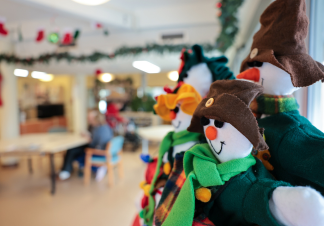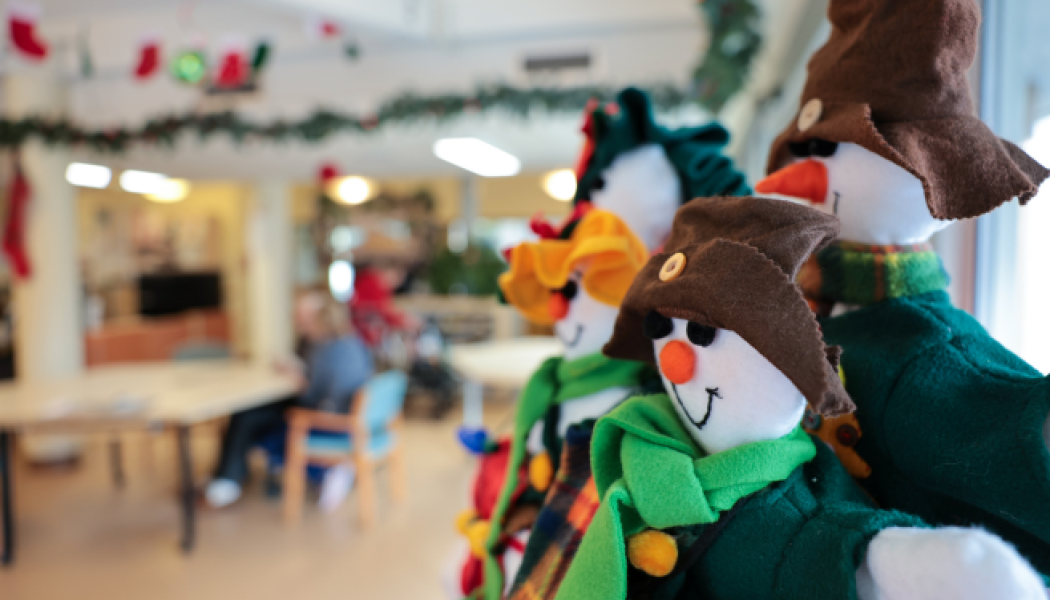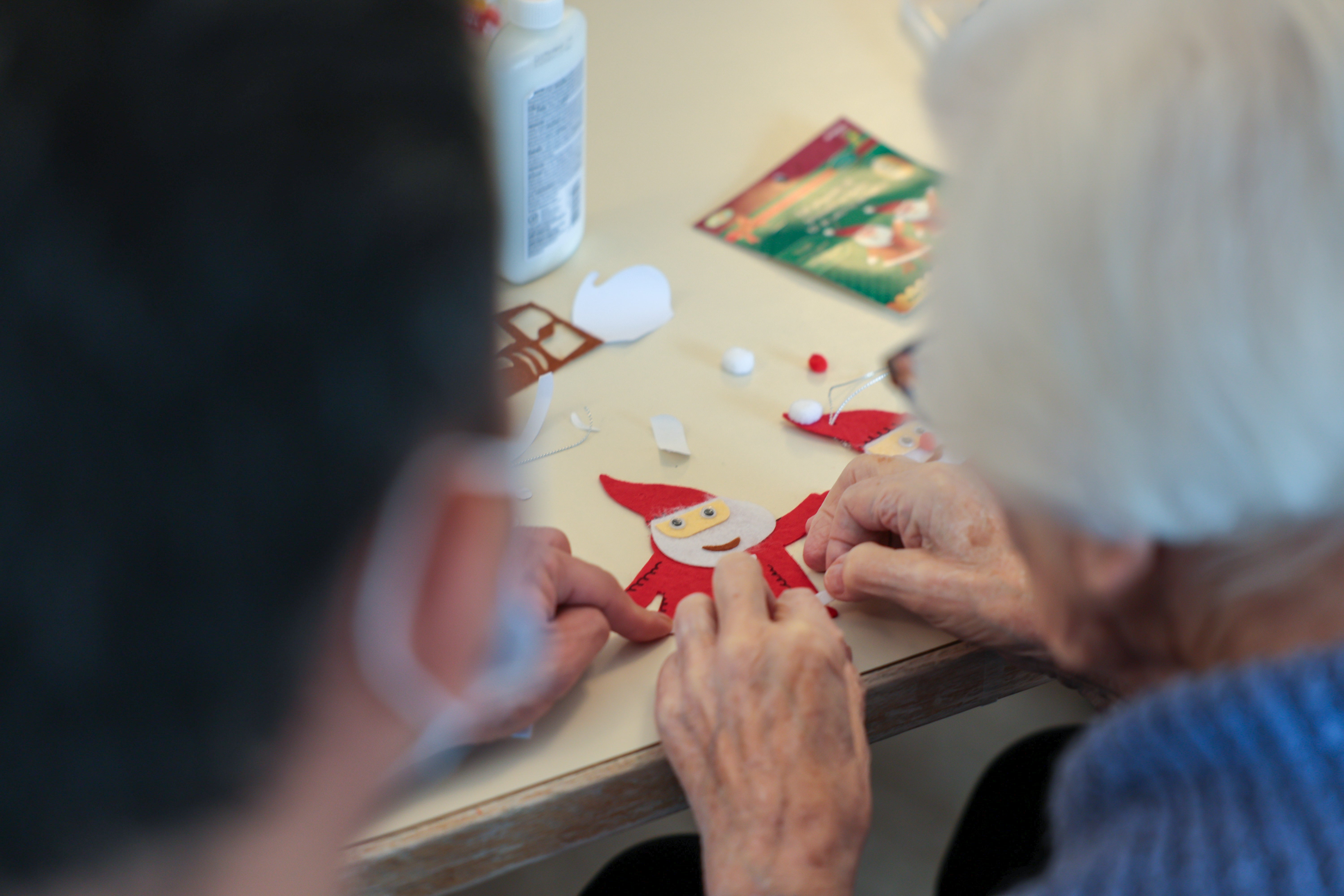With the holidays upon us, many of us look forward to spending time with family and friends. Holidays are special, and can mean more visits and gatherings, as well as activities and outings.
But for someone with dementia or cognitive impairment, large groups, noises and flashing lights, and unfamiliar places and people, can cause increased anxiety and feelings of overwhelm.
We spoke with two experts in seniors and dementia care about navigating the holidays and making this time of year pleasant and enjoyable for everyone. Whether your loved one is at home with you, or you’re visiting them in long-term care, here are some tips and things to consider.
















